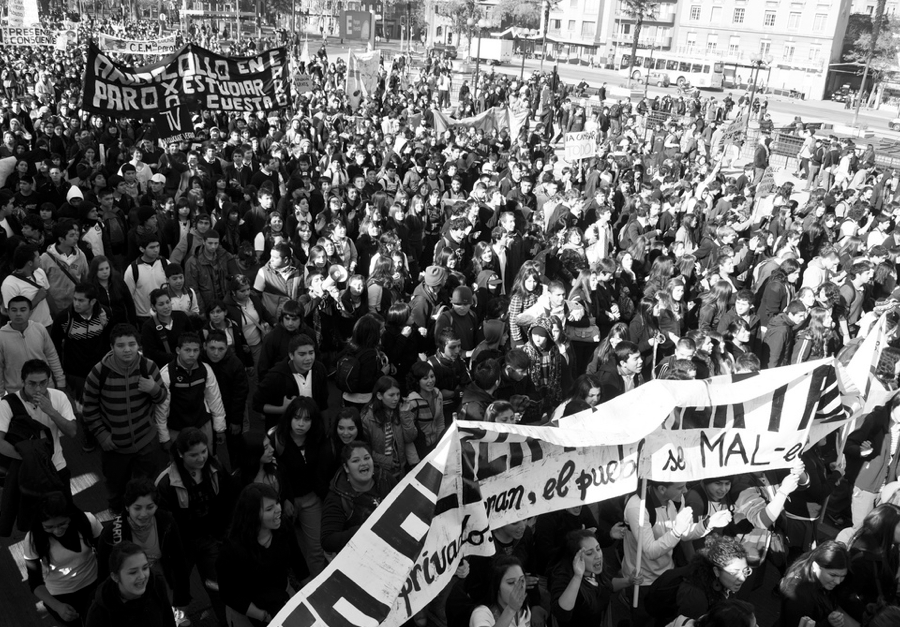

September 2013 marked the 40th anniversary of a violent military coup in Chile that launched the 30-year reign of US-backed general Augusto Pinochet.
In the Coykendall Science Building (CSB) Auditorium on Oct. 30, Chilean journalist Raul Cuevas shared clips of his raw footage of life under Pinochet’s Chile.
In 1970, Salvador Allende, founder of the Chilean Socialist party, was elected as president, winning with only 36 percent of the vote and strong opposition from the political right.
Raúl Cuevas filmed Allende’s campaign in preparation for a documentary about the rise to power of the president’s socialist coalition, but in September 1973 that coalition came to an abrupt and violent end.
In September 1973, after Allende had nationalized American-owned copper mines and formalized relations with China and Cuba and Chile’s economy had begun to stagnate, the military abolished the civilian government and began a widespread campaign of repression.
Nightly raids by secret police woke slumbering citizens and protesters in the streets were met by military force.
César Barros, a professor of the department of foreign language and literature, met Cuevas at Fidox, a 2011 documentary film festival in Chile.
Barros described Cuevas’ documentary work as “scenes of absolute and violent repression” with the “peculiar character of being both the work of a witness and an accuser.”
The documentarian fought in opposition to the dictatorship in its early years and was taken prisoner by the regime a few weeks after the coup. He was held captive for two months under brutal conditions, but managed to flee to Argentina.
Cuevas, armed with BBC press credentials, returned to Chile in 1984 and spent the next six years amassing about 170 hours of raw footage of protests, detention centers and military raids – everyday life under Pinochet’s regime.
“The reason I could go everywhere was that I was working for the BBC – the press credentials had a British flag,” Cuevas said. “The Chilean military saw the British flag and left me alone.”
In one of the scenes Cuevas presented, a German camerman, part of Cuevas’ team, was holed up in a building across from the national soccer stadium in the Chilean capital of Santiago. The stadium had been converted to a processing center where thousands of political prisoners were brought after being taken from their homes.
“They went to this town and arrested all the men over 15 years old, took them to an empty stadium and put on the front of their houses a marking,” Cuevas said. “When I arrived there, I only saw women and children.”
According to the United Nations Human Rights commission some 250,000 people were detained for political reasons and as many as 3,197 people died or disappeared according to an investigation conducted by Chile in 1996.
The footage Cuevas captured was broadcast in the UK and across Europe, but Chileans didn’t see it until years after Pinochet stepped down.
Chile today remains a deeply divided country, according to Barros.
In September 2011, hundreds of thousands of students shut down the Chilean university sytsem calling for tuition-free education.
“Education as we know it now in Chile is a product of that dictatorship and the system that it perpetrated,” Barros said.
Like most of Chile’s institutions, its education system has its roots in the Pinochet regime. The country’s constitution, written in 1980 by the military regime, has remained largely unchanged.
These youth and student protesters are, according to Barros, revisiting the Pinochet era as a result of unprecedented access to footage and historical records from the dictatorship.
“All of their statements are very historically rooted,” Barros said. “They figured out a way to articulate things much better than previous student generations, including my generation in the ‘90s.”
Pinochet’s exit from power was gradual – he remained commander in chief of the army for eight years after stepping down in 1990 and became “senator-for-life,” as per the constitution, a title he held until he died in 2006.
Barros plans to host a screening of Cuevas’ documentary, “Images of a Dictatorship,” next semester.
“It’s very different to see it than to hear about it,” Barros said. “You really see how violent the reality is and how similar it can be to your reality. It’s not only Latin America or countries in the third world. Police can be very violent here also.”
